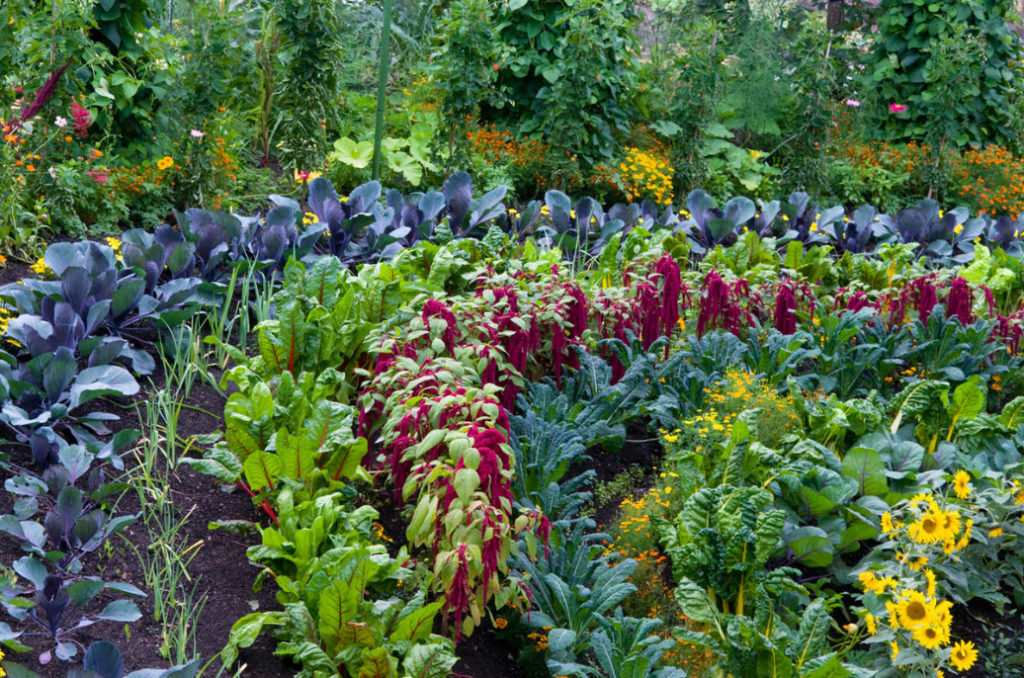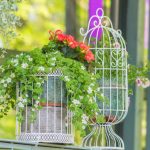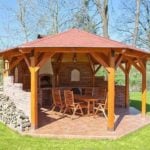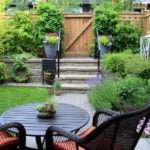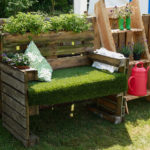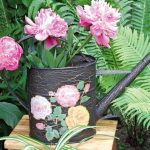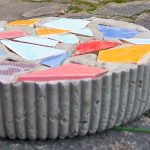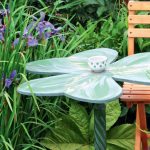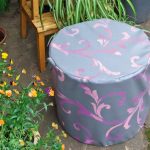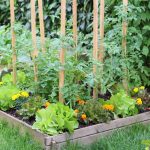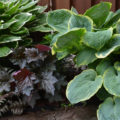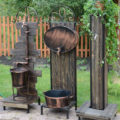Should a vegetable garden be beautiful? Many will answer with confidence: “Of course, yes!” However, beauty is a subjective concept, you will agree. Everyone understands what kind of garden can be called beautiful in their own way, but there are ideas that have been tested by time and practice, have survived for more than one generation and are invariably popular.
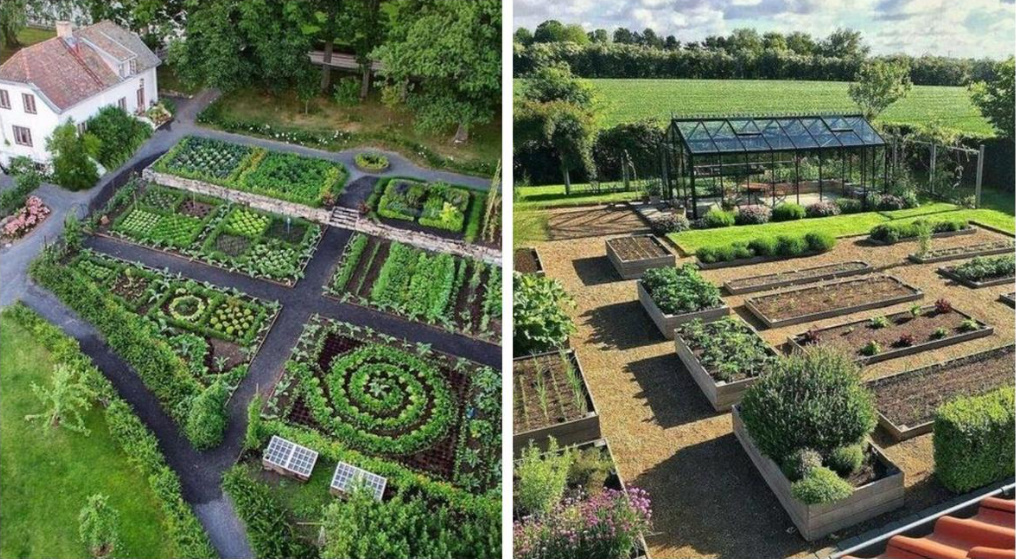
Beautiful vegetable garden: traditions and modernity
The history of ornamental vegetable gardens has more than one century — experience has been accumulated, traditions have developed. Therefore, it is probably not necessary to reinvent the wheel — you can use the principles and rules invented and tested long before us.
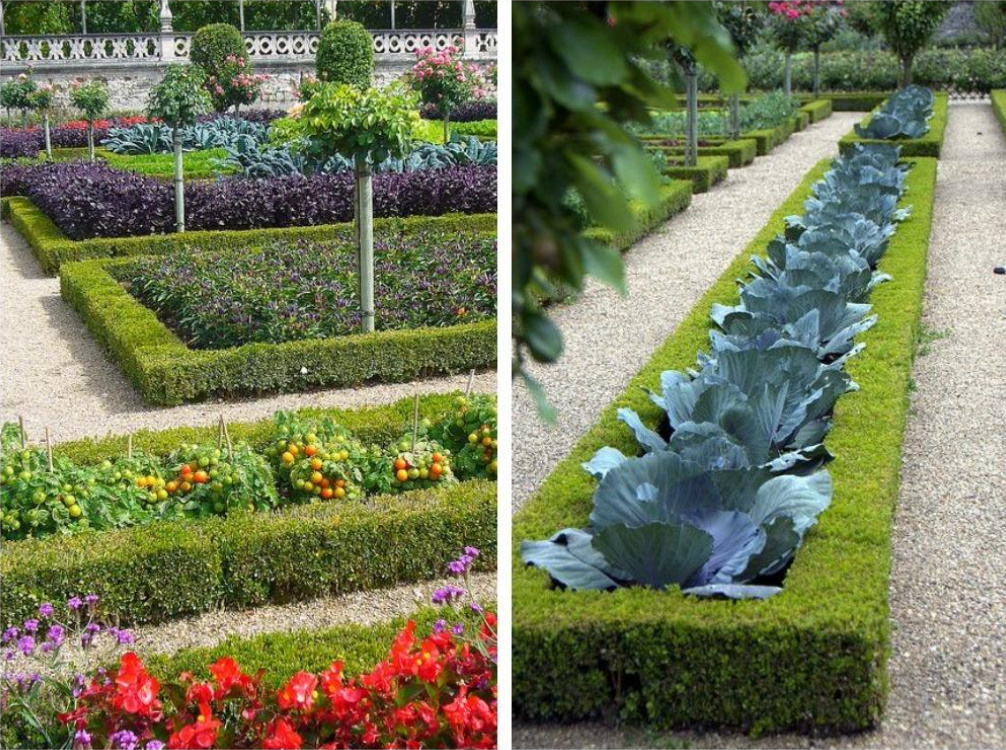
And what do the old monastery or palace regular vegetable gardens have in common with modern ideas of beautiful beds? The answer to this question is easily found by any attentive observer. The vegetable garden looks beautiful when it:
- well-groomed: plants are healthy, weeds are weeded, paths are clean;
- harmonious: the plants are selected in shape, size and color in compliance with the laws of composition;
- designed in a classic style: clear lines, strict proportions, symmetry, geometric shapes.
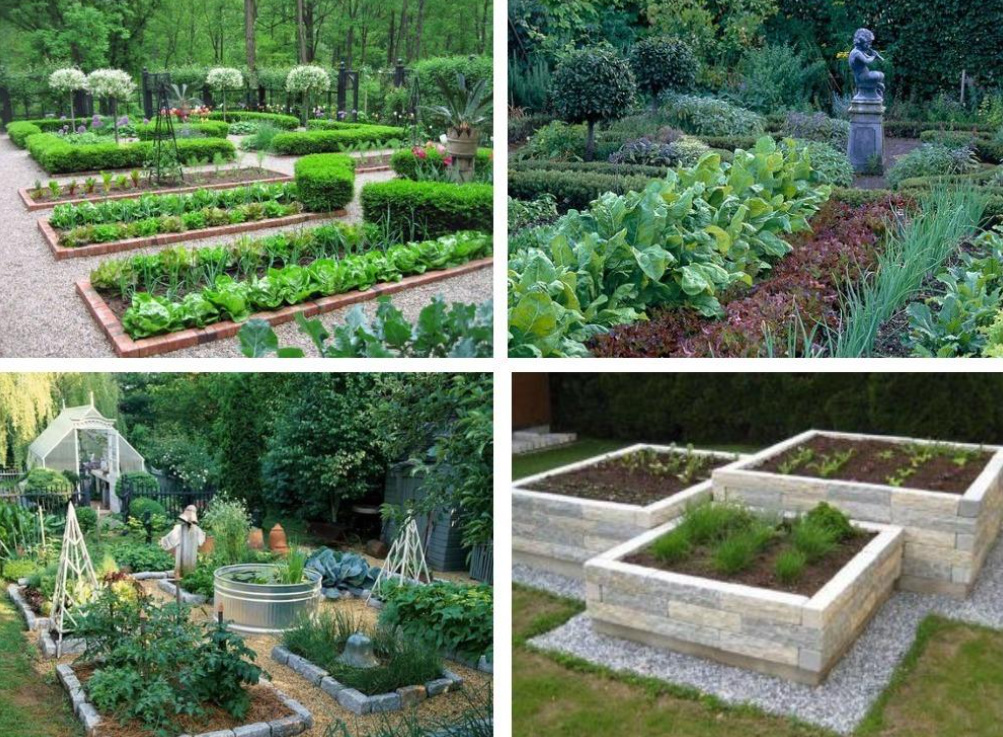
Which garden is the most beautiful?
I think no one has found the only true and correct answer to this question yet: different solutions are needed for different climatic conditions, different tasks and opportunities of the owner of the garden. Not the least role is played by the style of the site as a whole: the French classic “a la Villandry” near a rural wooden hut will look strange, you agree.
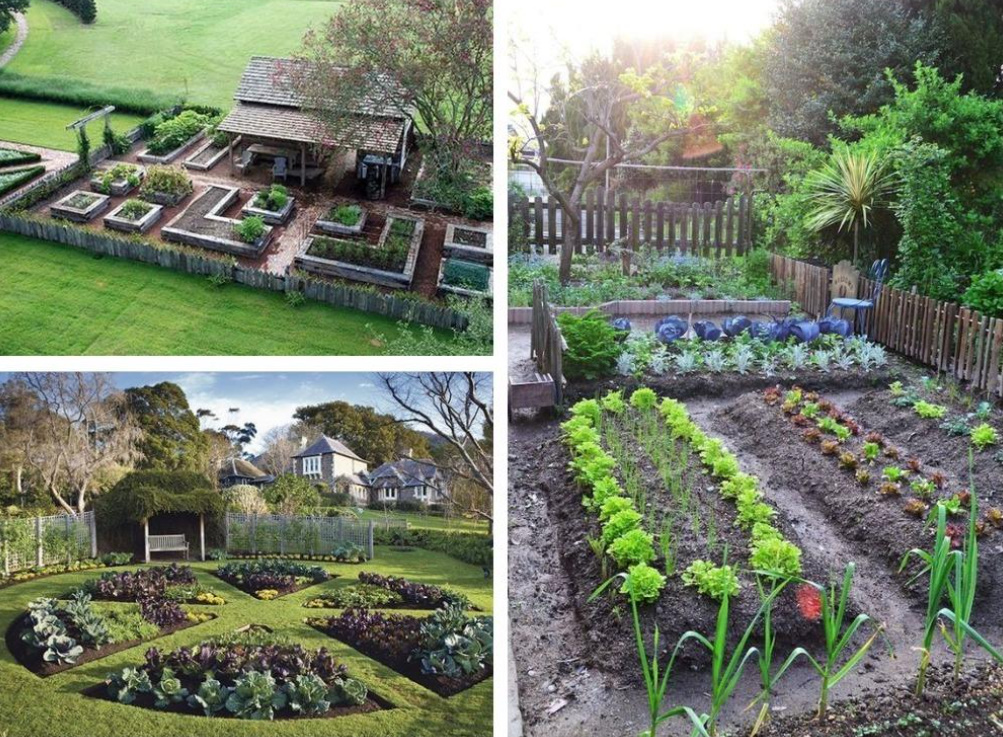
However, even here we will find ideas that can be adapted to the conditions of a particular cottage or suburban area
In the main role — fencing
Many summer residents with all their heart fell in love with stationary beds with fences made of various materials. Such a solution has not only aesthetic, but also purely practical advantages.
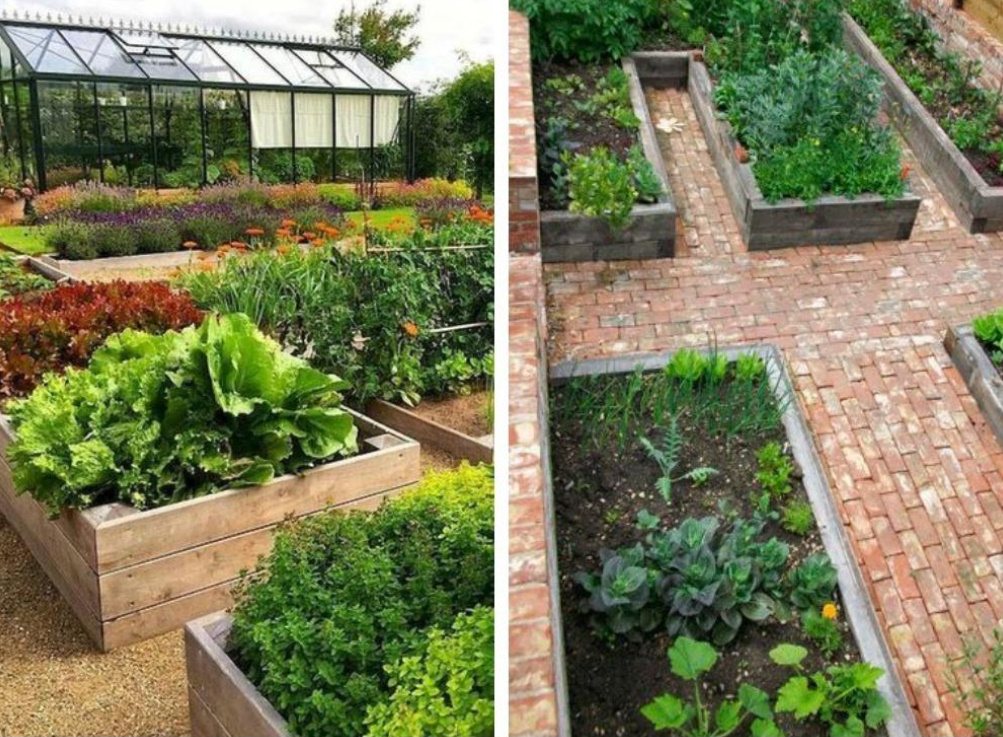
If convenience is more important to you than beauty, it is not necessary to bother with the choice of material for fences — what is in the household, up to the old slate and boards, will do. But for decorative beds, fencing can become the very “highlight” that will give uniqueness to the whole garden.
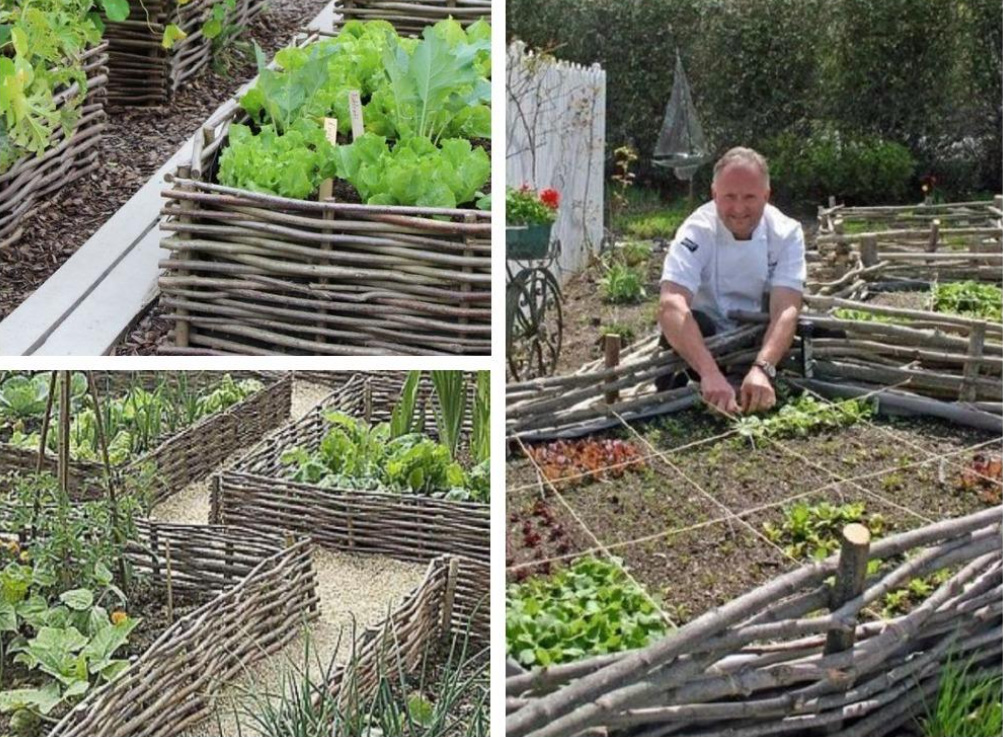
Take, for example, a fence. Yes, such a fence is quite laborious (if done by yourself, and not made up of ready-made purchased sections) and is not particularly durable. But the material is easy to get, and the weaving process itself can be fun.
However, no matter how attractive this option is, it is not suitable for every site. It doesn’t matter, there are other ideas:
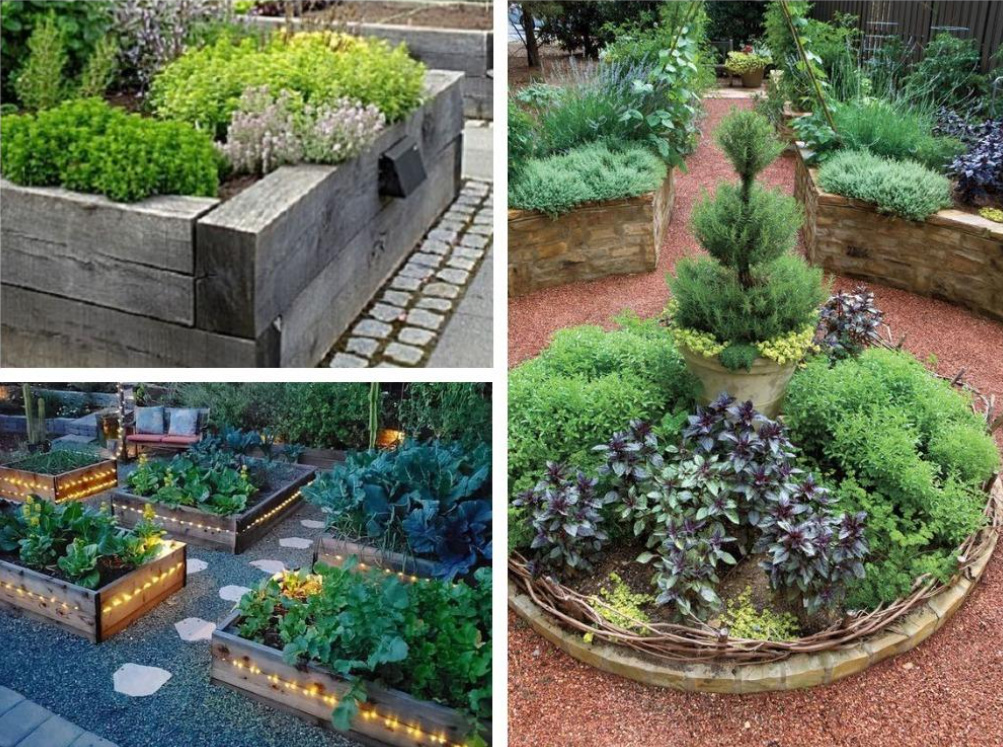
Pay attention to the details: in the photo on the right there is a kind of compromise between the wicker and stone framing of plantings; at the bottom left there is a backlight that makes ordinary box beds unexpectedly elegant; at the top left there is an interesting contrast of brutal fencing and fragile miniature plants…
The focus is on the form
A win—win solution is to focus on the shape of the beds. The possibilities for creativity here are inexhaustible, because the form is not necessarily strict rectangles or squares!
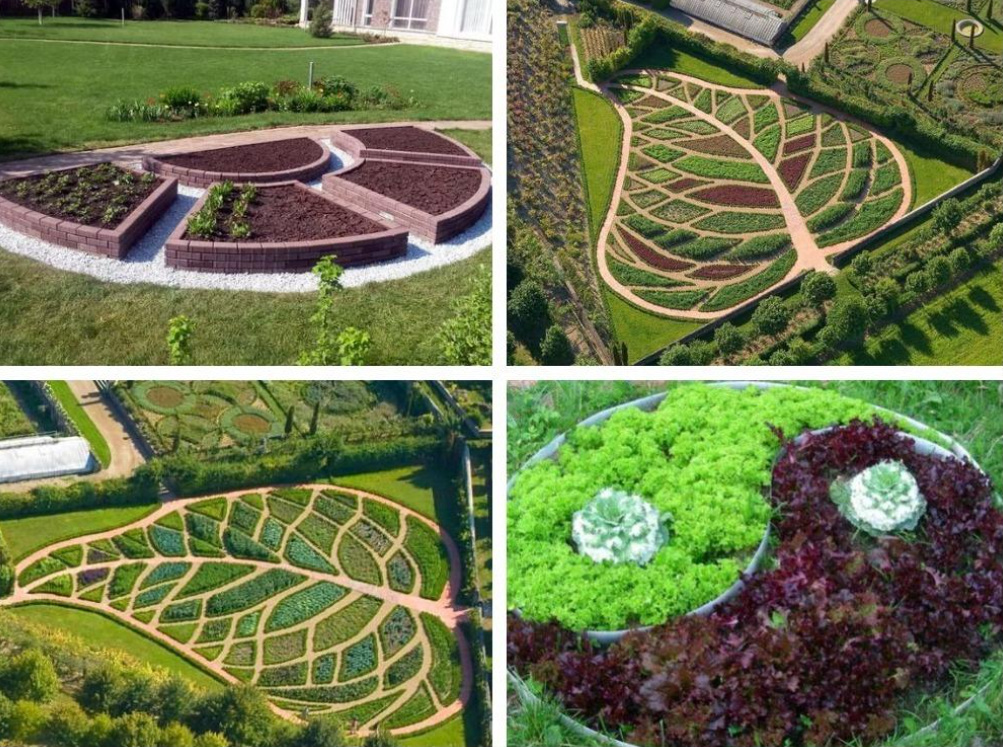
A round vegetable garden with beds-segments has already become a classic, but it still looks stylish and modern:
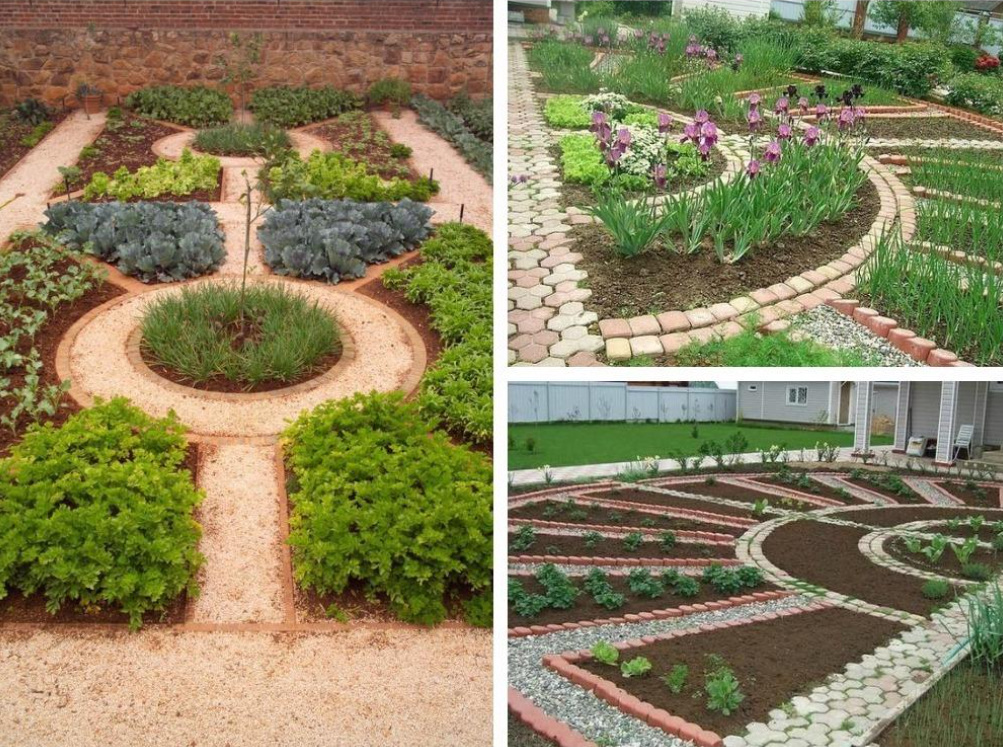
Of course, you can’t plant potatoes in such a garden, but it is quite suitable for spicy herbs, greens and even root vegetables. And also pay attention: such a vegetable garden can be placed in the front area of the plot and planted on it not only vegetable and spicy crops, but also flowers.
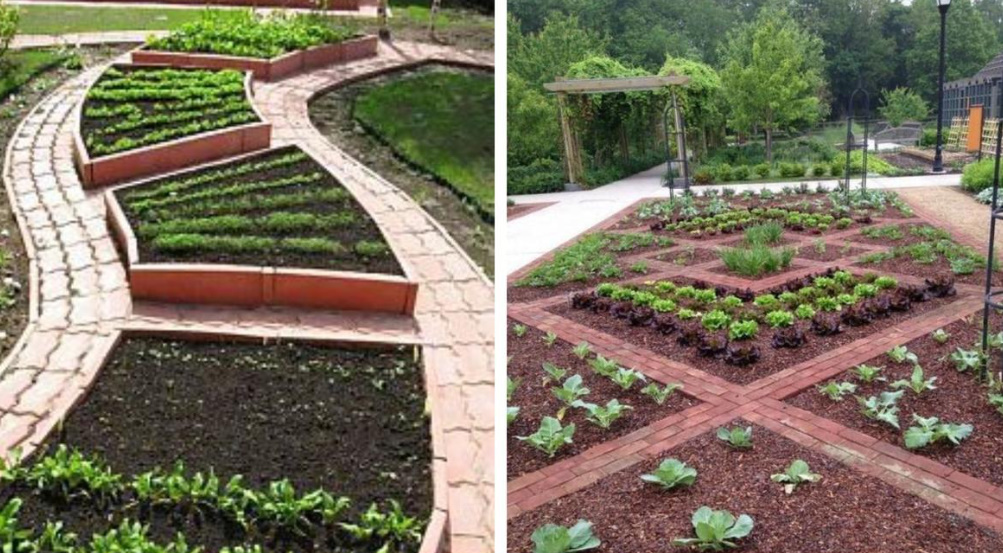
If you want a beautiful vegetable garden, forget about stereotypes! Choose the shapes that you like and that best fit into the landscape of your site.
Successful combinations
If there is no desire to “build a garden”, constructing monumental beds, focus on the composition. Plant vegetables, choosing varieties according to the color scheme, playing on nuances or contrasts, using different shapes and textures — “draw” plants on the beds. For example, like this:
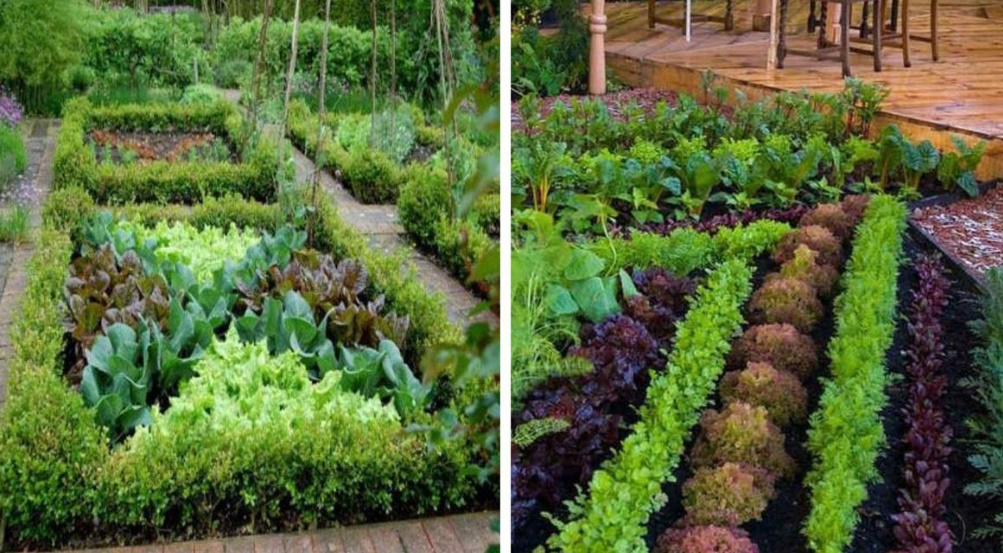
Plant vegetables as if they were flowers. And flowers, by the way, such plantings can be supplemented (for example, marigolds will also improve the soil, and will scare away pests). Just do not forget to take into account the compatibility of crops — in combined and compacted plantings this is important.
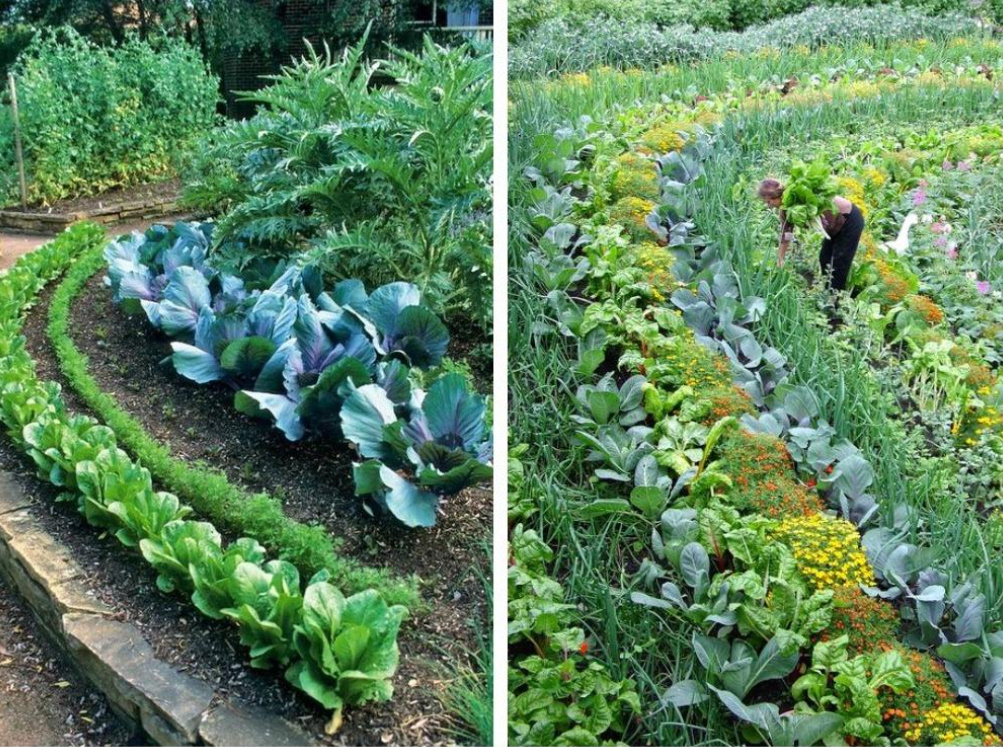
You know how to make beautiful flower beds and mixborders, which means that you will also get beautiful beds, because many vegetable crops are almost as good as decorative ones!
And what techniques do you use to make your garden beautiful? And is beauty in the beds important to you? Share your opinion in the comments!
